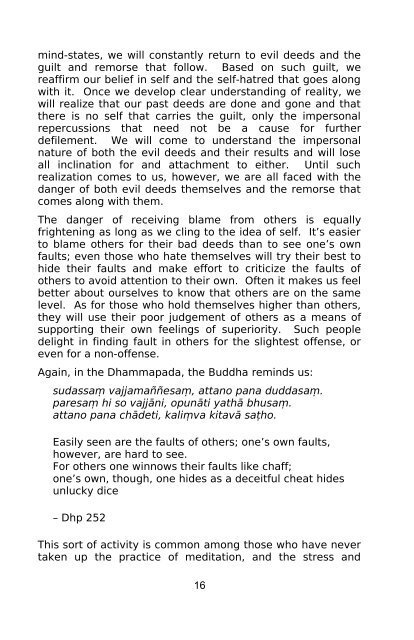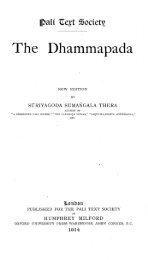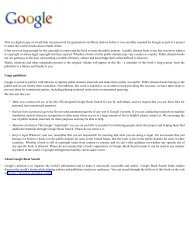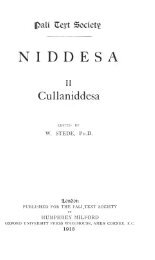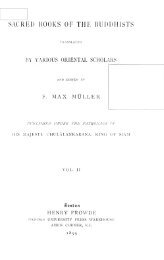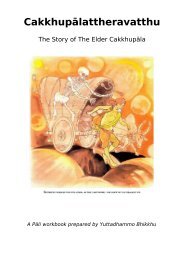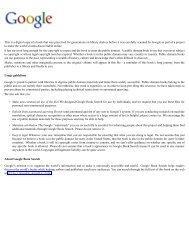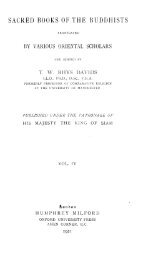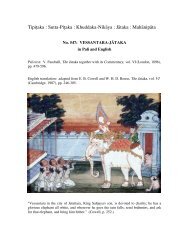Lessons In Practical Buddhism - Sirimangalo.Org
Lessons In Practical Buddhism - Sirimangalo.Org
Lessons In Practical Buddhism - Sirimangalo.Org
Create successful ePaper yourself
Turn your PDF publications into a flip-book with our unique Google optimized e-Paper software.
mind-states, we will constantly return to evil deeds and the<br />
guilt and remorse that follow. Based on such guilt, we<br />
reaffirm our belief in self and the self-hatred that goes along<br />
with it. Once we develop clear understanding of reality, we<br />
will realize that our past deeds are done and gone and that<br />
there is no self that carries the guilt, only the impersonal<br />
repercussions that need not be a cause for further<br />
defilement. We will come to understand the impersonal<br />
nature of both the evil deeds and their results and will lose<br />
all inclination for and attachment to either. Until such<br />
realization comes to us, however, we are all faced with the<br />
danger of both evil deeds themselves and the remorse that<br />
comes along with them.<br />
The danger of receiving blame from others is equally<br />
frightening as long as we cling to the idea of self. It’s easier<br />
to blame others for their bad deeds than to see one’s own<br />
faults; even those who hate themselves will try their best to<br />
hide their faults and make effort to criticize the faults of<br />
others to avoid attention to their own. Often it makes us feel<br />
better about ourselves to know that others are on the same<br />
level. As for those who hold themselves higher than others,<br />
they will use their poor judgement of others as a means of<br />
supporting their own feelings of superiority. Such people<br />
delight in finding fault in others for the slightest offense, or<br />
even for a non-offense.<br />
Again, in the Dhammapada, the Buddha reminds us:<br />
sudassaṃ vajjamaññesaṃ, attano pana duddasaṃ.<br />
paresaṃ hi so vajjāni, opunāti yathā bhusaṃ.<br />
attano pana chādeti, kaliṃva kitavā saṭho.<br />
Easily seen are the faults of others; one’s own faults,<br />
however, are hard to see.<br />
For others one winnows their faults like chaff;<br />
one’s own, though, one hides as a deceitful cheat hides<br />
unlucky dice<br />
– Dhp 252<br />
This sort of activity is common among those who have never<br />
taken up the practice of meditation, and the stress and<br />
16


